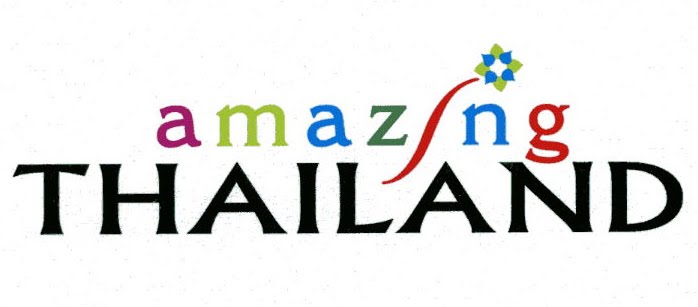Pancreas: A gland located behind your stomach It secretes digestive enzymes, notably insulin.
Pancreatitis: Inflammation of your pancreas.
Parasympathetic Nervous System: One of the two branches of your autonomic nervous system. It helps to regulate digestion, circulation, voiding, and other bodily functions.
Parathyroid Hormone: A hormone, made by four tiny pieces of tissue near your thyroid. It prevents your level of blood calcium from going to low.
Parietal Lobe: One of the four major subdivision of the two hemispheres of your brain. It is important in sensory processes and language.
Passive Stretching: Using a partner to take one of your limbs through a range of motion.
Patella: A.K.A. kneecap.
Pectorals: A.K.A. chest. These muscles include your pectoralis major and pectoralis minor.
Pepsin: A name for several enzymes secreted by your stomach. Their job is to break down protein.
Percutaneous diskectomy: A doctor removes part of your intervertebral disk. A narrow probe is inserted through the skin and muscle of your back.
Peripheral Vision: Side vision. This is what you can see outside of your direct line of vision.
Peristalsis: Muscles in your intestine move in a wave-like fashion to propel food along your digestive tract.
Peritonitis: Inflammation of the membrane lining your abdominal cavity.
Physiatrist: A medical doctor who is trained as a rehabilitation specialist.
Phytochemicals: Substances in fruits and vegetables that recently have been shown to fight cardiovascular disease and cancer.
Pilates: Pilates(puh-la-tease) is named after Joseph Pilates who developed it in Germany in the 1920s. It was a favorite exercise for dancers who wanted to strengthen their muscles and soothe their aches and strains. Now it's the rage among those burned out on regular weight training. Proponents of Pilates suggest that it lengthens and strengthens muscle, while improving balance and posture.
Placebo effect: A.K.A. sugar pill. Your condition improved. But whatever helped you wasn’t in the pill you were taking. From chromium picolinate to shark cartilage, people think more of supplements than they are worth. Folks swear to me the benefits of colloidal minerals and magnets. Benjamin Franklin painted blocks of wood black. People thought they were magnets. They slept with these blocks of wood because they believed magnets cured arthritis. Miraculously, they were healed. The blocks of wood worked!
Plaque: A fatty buildup of cholesterol, calcium, and other substances inside your blood vessels.
Platelets: Tiny,colorless disks in your blood that help your clotting mechanism.
Plyometrics: Makes use of your myotatic stretch reflex to pre-stretch your muscle prior to exploding through your designated range of motion.
Polyunsaturated fats (PUFAs): A.K.A. the good fats. These are fatty acids found in soybean, corn, cottonseed, safflower, and sunflower oils. Two or more pairs of hydrogen atoms in each molecule have been replaced by double bonds.
Presbyopia: A.K.A. farsightedness. This is the natural loss of your eye’s ability to focus on close objects. It becomes prevalent in people over 40 year old. But it can be corrected with reading glasses.
Process: Bony projections that emanate from each of your vertebra
Prone: A.K.A. lying on your tummy.
Proprioceptive Neuromuscular Facilitation (PNF): A type of stretching where you take your partners limb through a passive stretch. When your partner feels tension in the muscle, he/she presses against you for 3 seconds. Then he/she relaxes and you once again attempt to move your partners limb a little deeper into the stretch. The purpose of PNF is to activate your golgi tendon organ to relax your muscle and provide for a further stretch.
Proprioceptive Training: A.K.A. balance training.
Prostate: A walnut-shaped gland positioned at the base of the male bladder.
Prostatitis: Prostatitis is an infection of the Prostate Gland. Symptoms include an aching pain in the area of the prostate. Pressure to the prostate gland is painful enough so that sitting may hurt. Other symptoms include trouble urinating, dribbling, and urinating often at night. Acute cases may be accompanied by fever.
Protein: Protein is made up of chains of amino acids. Your body can make some, but not others. Protein is essential for building and maintaining muscles. Protein also repairs muscle damage that occurs during training. Protein also helps to make red blood cells, produce hormones, boost your immune system, and help keep hair, fingernails, and skin healthy.
Pseudoephedrine: A decongestant drug.
Psoriasis: Psoriasis is a potentially disfiguring skin disease. It generally affects adolescents. It involves the sebaceous glands in the skin which secrete lubrication for hair follicles and the surrounding skin. These are located in greatest concentrations on the face, back, shoulders, and chest.
Pursed Lipped Breathing: Used to slow your exhalation by forming your lips as if you were whistling.

ไม่มีความคิดเห็น:
แสดงความคิดเห็น